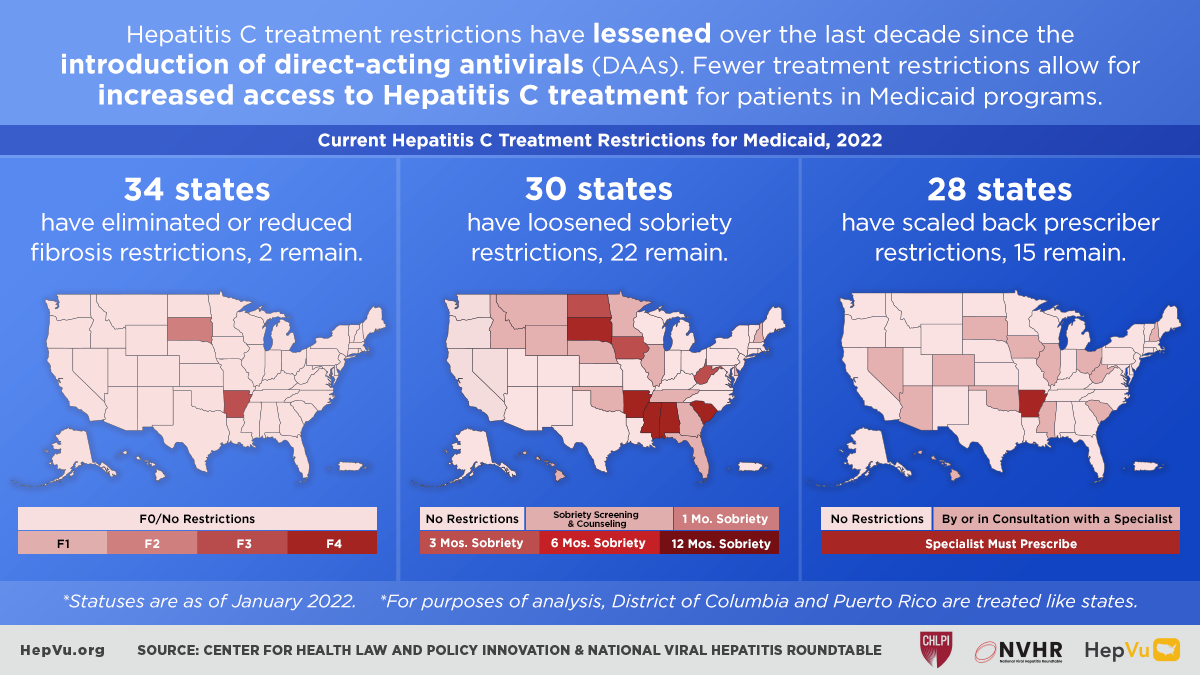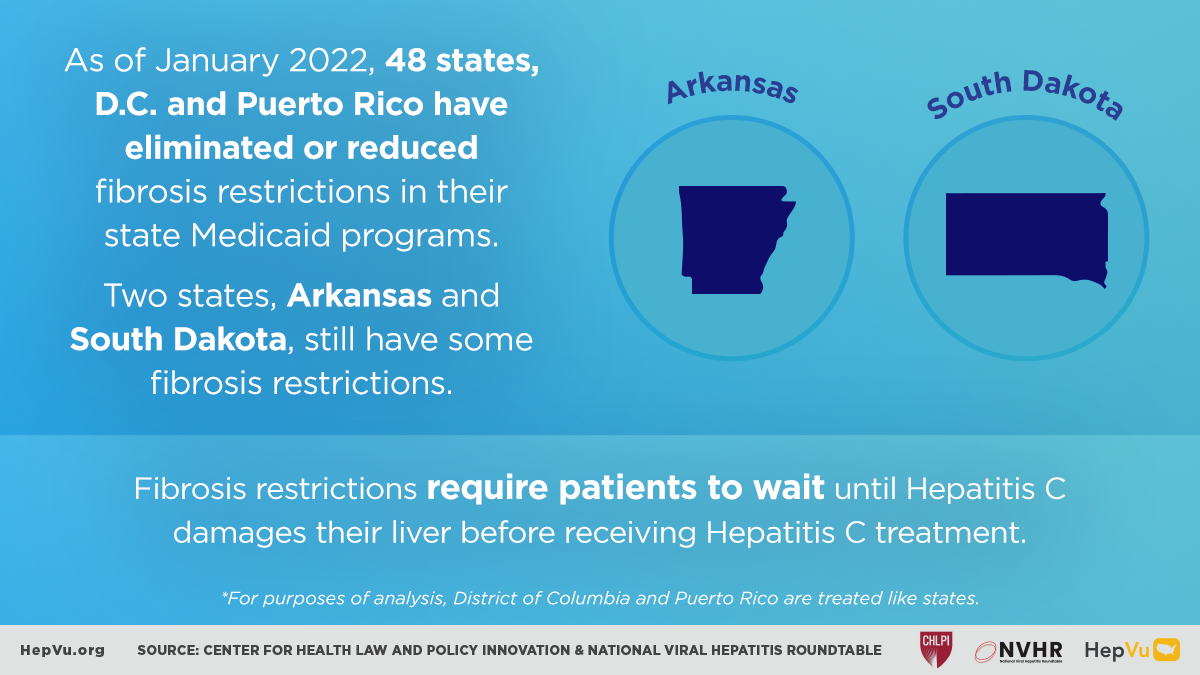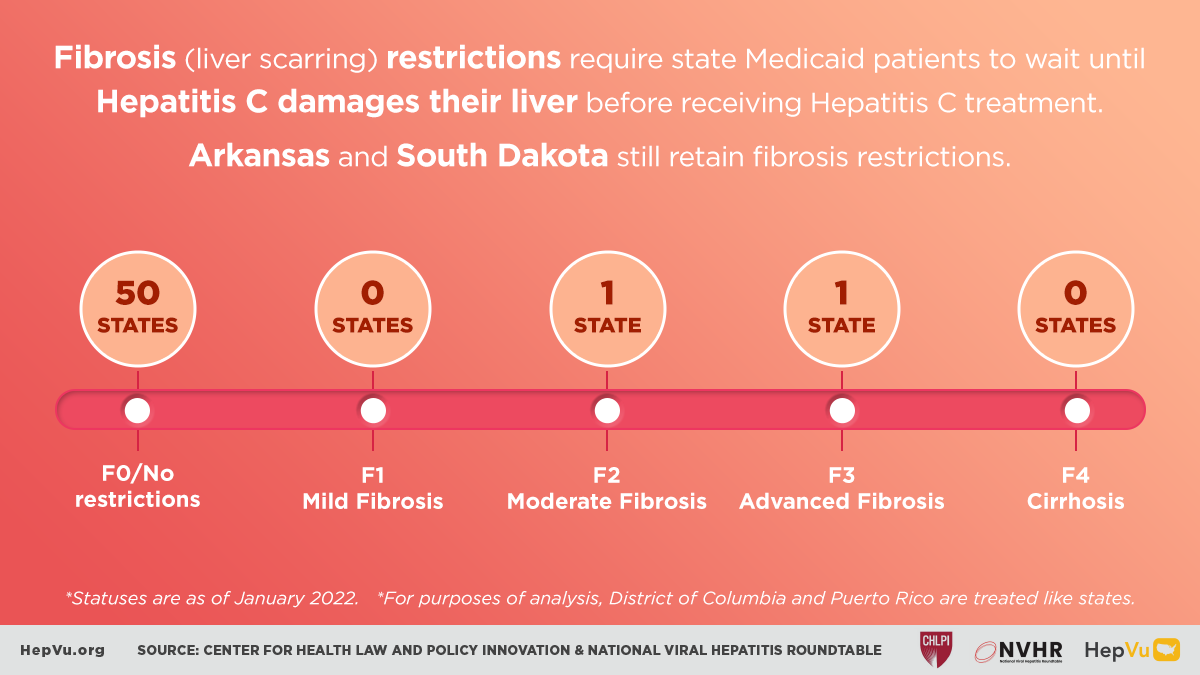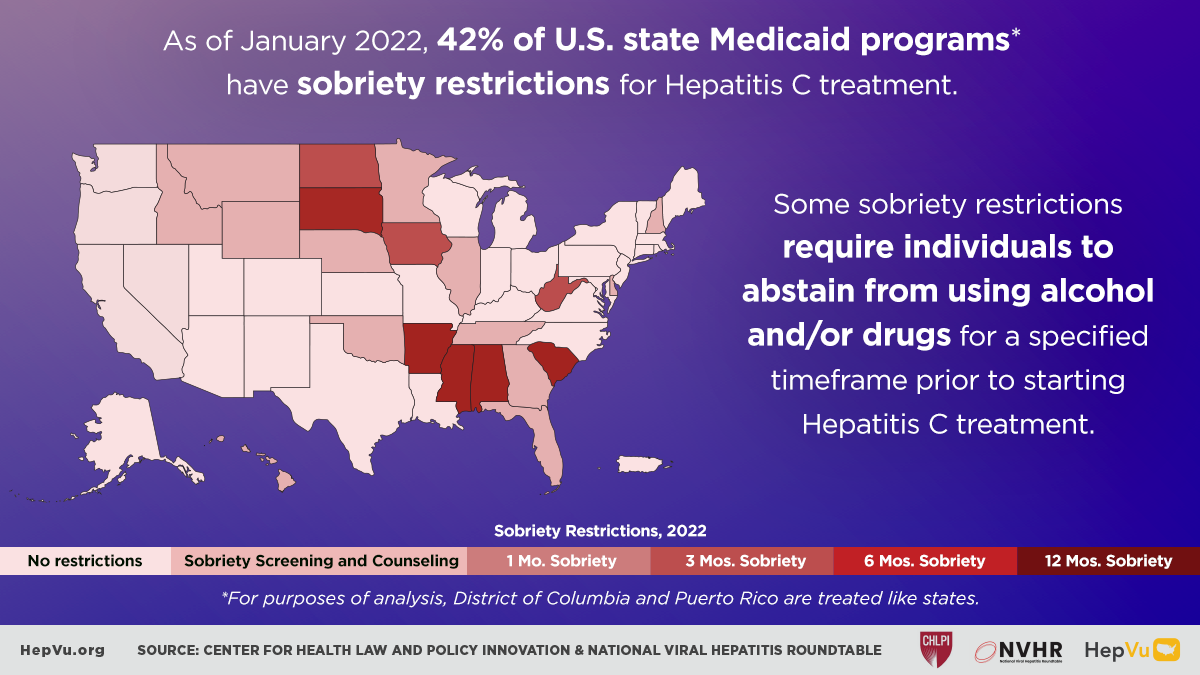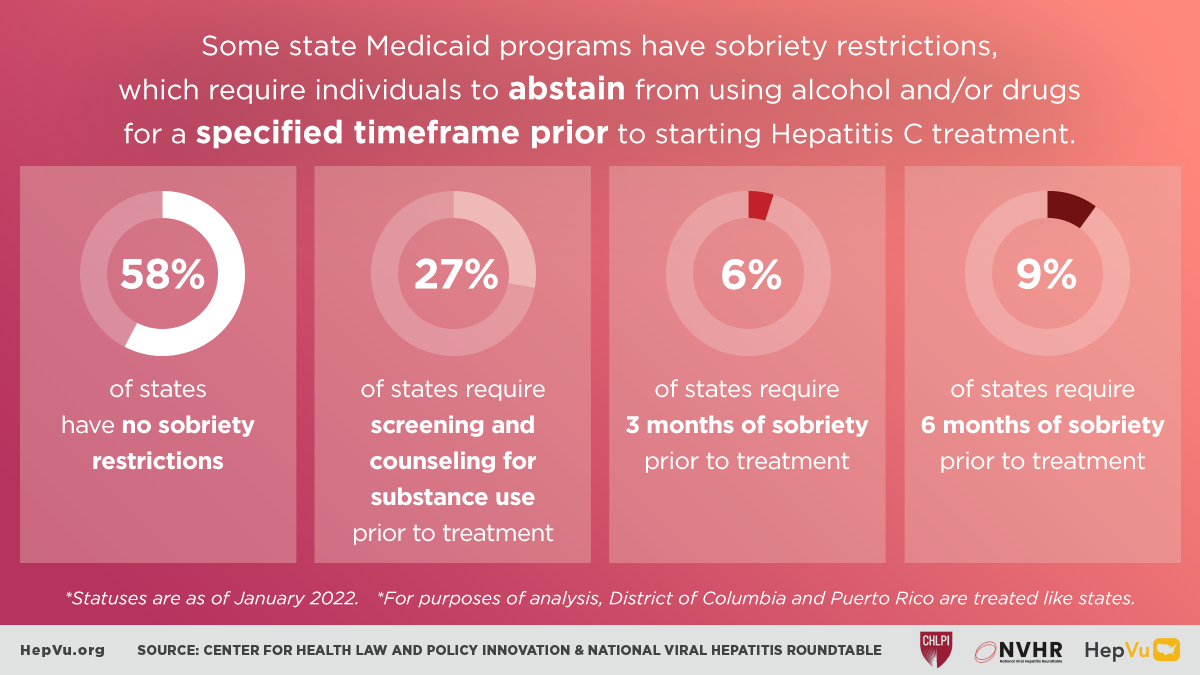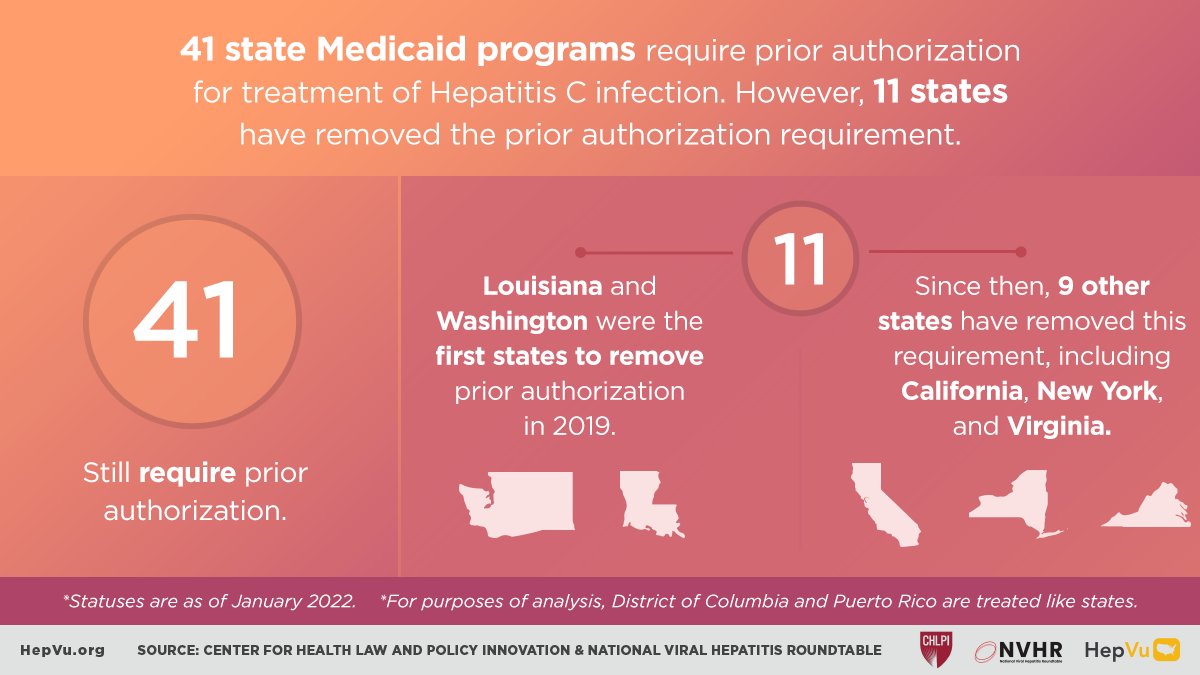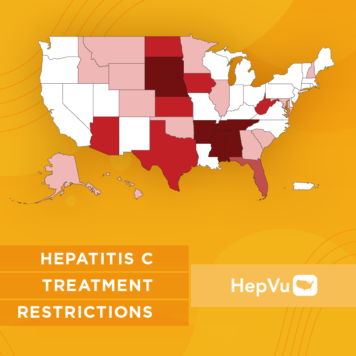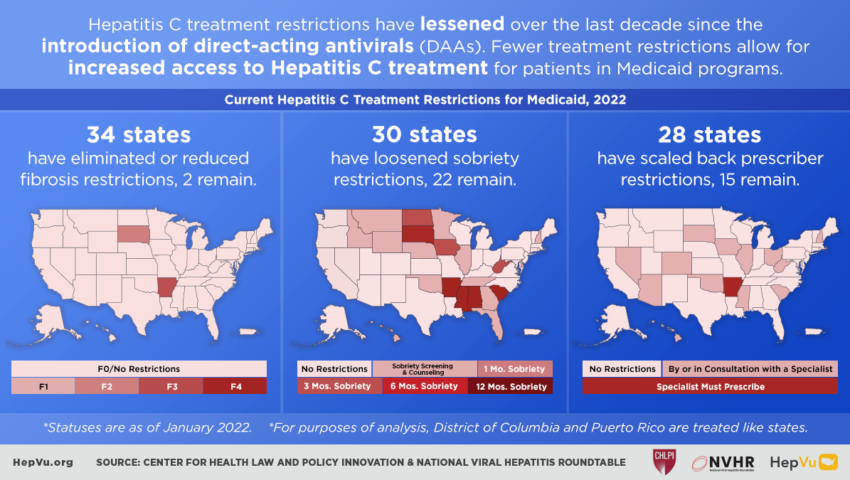
Today, HepVu added updated data and comparison maps visualizing Hepatitis C treatment restrictions at the state-level from 2017 to 2022, utilizing insights and research findings provided by the Center for Health Law and Policy Innovation (CHLPI) of Harvard Law School and the National Viral Hepatitis Roundtable (NVHR). HepVu is also releasing a new map visualizing the use of prior authorizations, in addition to updated state profiles that show each state Medicaid program’s Hepatitis C treatment restrictions. These new data and visualizations document the changing Hepatitis C treatment restrictions landscape.
Treatment restrictions are non-medically indicated criteria limiting access to lifesaving medications. When highly effective and curative direct-acting antivirals (DAAs) were introduced to treat Hepatitis C nearly a decade ago, many state Medicaid programs created restrictions for patients to access the new medications as a cost-saving measure. These treatment restrictions create barriers to life-saving treatment, perpetuate stigma, and undermine public health efforts to address the transmission of Hepatitis C.
Four major types of restrictions on Hepatitis C treatment employed by state Medicaid programs include:
- Fibrosis Level Treatment Restrictions – Fibrosis is scarring of the liver, which severely deteriorates the organ. Fibrosis restrictions require patients to wait until Hepatitis C severely damages their liver to a certain level before receiving treatment. Fibrosis is estimated on a scale from 0 to 4, with 4 indicating liver failure or cirrhosis.
- Sobriety Treatment Restrictions – These restrictions require patients to abstain from using alcohol and/or drugs for a specific period of time before starting Hepatitis C treatment, or to document screening and counseling before treatment. The period of required sobriety can range from one to six months before treatment.
- Prescriber Treatment Restrictions – These restrictions limit the type of clinicians that can prescribe Hepatitis C treatment. State Medicaid programs with prescriber restrictions require a consultation with a specialist, such as a hepatologist, or that a specialist directly prescribes treatment, which can hinder treatment in areas with few Hepatitis C specialists.
- Prior Authorization – Prior authorization is an administrative process whereby healthcare providers must submit paperwork and get advance approval before an insurance company will decide whether to cover a medication or service. This extra bureaucracy creates further barriers to streamlined treatment.
The U.S. has made tremendous progress in eliminating or reducing treatment restrictions since tracking began in 2017. Due to the continued and diligent work of viral hepatitis organizations such as CHLPI and NVHR:
- 34 state Medicaid programs have eliminated or reduced fibrosis restrictions, 2 state Medicaid programs still retain this restriction.
- 30 state Medicaid programs have loosened sobriety restrictions, 22 state Medicaid programs maintain some degree of restrictions.
- 28 state Medicaid programs have scaled back prescriber restrictions, 15 state Medicaid programs maintain some degree of restrictions.
- 11 state Medicaid programs have removed prior authorization for treatment of Hepatitis C for most patients entirely, 41 state Medicaid programs still require prior authorization.
While much progress has been made, advocates continue to work towards eliminating barriers to care and increasing access to Hepatitis C treatment, especially for medically underserved populations such as communities of color and people who inject drugs. To get involved and help advocate to eliminate these treatment restrictions, explore Hepatitis C: State of Medicaid Access.
For more information on the data source and limitations, see our Data Methods.
To learn more about Hepatitis C treatment restrictions, explore HepVu’s resources:
- Visualize the current landscape of Hepatitis C treatment restrictions at the state-level with HepVu’s interactive maps.
- Explore our local data profiles to learn about Hepatitis C treatment restrictions in your state.
- Read expert-led Q&As on Hepatitis C treatment restrictions:
- Find available viral hepatitis testing and care services near you with HepVu’s service locators.
- Share our infographics with your networks to raise awareness.

